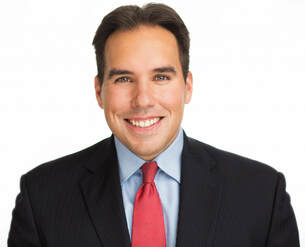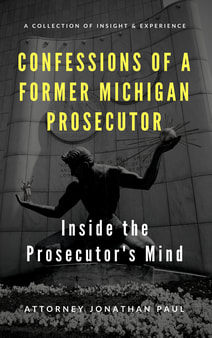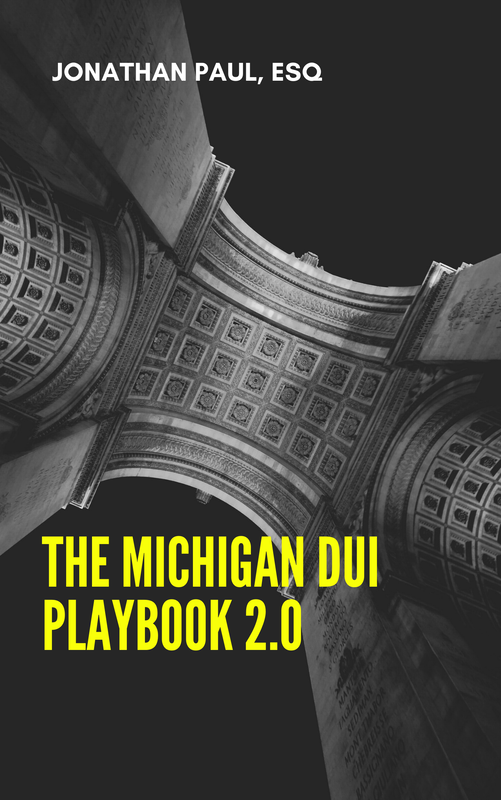|
I stand before 100's of judges each year on DUI cases. If we're able to successfully resolve a case to the clients satisfaction, we will appear before the judge for sentencing. The charge may have been reduced to a lower DUI charge or even a non-DUI charge, but the judge will always examine the "original case", not what was worked out with the prosecutor.
For example, if my client creates enough leverage proactively and we find enough leverage within the facts of the case, we may be able to create a non-DUI outcome such as disorderly conduct. Even if we're able to do this, the judge is still going to treat the sentence as a drunk driving sentence; that's not necessarily a bad thing, but many clients think they are out of hot water if the prosecutor cuts a great deal. There's two things a judge takes a "close look" at: was there an accident, and is the BAC number "high" - in my experience, a judge look at anything above 0.15 as a high, and anything with a 0.20 and up to be "concerning". When you're approaching being 3x the legal limit, terrible things are bound to happen, but for some luck that the client didn't kill someone with their vehicle. A client may be able to function at 3x the legal limit, but it's very unlikely the judge believes that, nor cares if you're able to drive at that level. Even if a judge is not known for sending first offenders to jail, if you have a BAC at a "concerning" level, the changes go up on spending a weekend or more in jail in Michigan. So what do we do to prepare for this scenario? We put safeguards in place such as daily alcohol testing, Impact Weekend, proactive community service, Intensive Outpatient (IOP) treatment among other steps from day one. We can't change a BAC number if we're going to be pleading on a case, but we can take the sting off the result. Winning your life back Michigan Drunk Driving - Being Proactive and feeling good about yourself5/5/2016
Yes being proactive is mandatory when you work with me, and yes it is mostly geared to help us with the prosecutor, judge and probation, but in the end it could save my client’s life. Most clients come to me for a DUI after the worst night of their life, and something led to this moment in time. My client may be having trouble at work, medical issues, trouble at home or simply have an out of control substance abuse issue. A client comes to me for help inside the courtroom, but I probably help them even more outside of the courtroom.
I see clients at their worst; they come to me with everything on the line. A client’s freedom is on the line, finances are about to get tight, and their ability to drive is in jeopardy. Sometimes my client is in a bad place medically, and without my help, will hurt themselves or someone else in the community. I’ve yet to work with a client who did not tell me during the case, or at the end of the case that my proactive program really helped them get their life together. The average DUI case in Michigan lasts about 8 weeks, and longer if we go to trial. Many of my client’s cases are not completed until 6-12 months after the actual DUI incident happened. During a DUI case in Michigan, a court at most is doing some alcohol and drug testing, but the client is allowed to drive without restriction, and free to live their life however they wish. There isn’t much to stop a client from drinking and driving at this point in the case; if the client has an alcohol problem, the addiction will be stronger than fear of a bond violation. Sometimes a case takes awhile to be charged, and a client can have weeks and months go by before a court is even monitoring them for drugs and alcohol. This is exactly why I require all of my clients to go on my proactive plan from day one. Even if the end result is a dismissal of charges, or a not-guilty at trial, the client still found themselves arrested and charged with a DUI offense. This is enough of a reason to make changes in your life, and put a number of safety measures (for the client, their family and the community) in place. Not only will the program help once we’re in court, but I need a sober and clear-minded client to assist me during the case. I need a client who has sweat equity in the result, and a I need a client who is learning from the case no matter the outcome. My ideal case result for a client is the following: Client comes to me after a DUI arrest. Depending upon criminal history and the facts of the case, the client begins proactive alcohol testing to hold themselves accountable from day one. The client is not using illegal drugs, and they pass a 10-panel drug screen, and they test daily for alcohol. The client undergoes an alcohol screening and assessment and follows the recommendation (education and or/treatment), and attends AA on a weekly basis. I may also send the client to an Impact Weekend or intensive outpatient or inpatient counseling. As my client is making changes in their life, and holding themselves accountable, I am working all angles on their behalf to have their case dismissed via motion or at a hearing, and come up with potential trial defense. Best case, we make the case go away, but my client has learned from the situation, and will never put themselves in the same situation again. I also hope that their family and friends can learn from the situation, and the case has a broad impact on society in a very positive way. I’ve had clients share their stories with friends and family, which have inspired those people to be more aware of their own decisions. Outsiders see my client who is otherwise successful and put together, and realize that no one is immune to getting in trouble while behind the wheel. The worst thing would be for a client to get off, not learn from it, assume they’ll get off the next time, and continue this dangerous pattern of bad choices. Nobody likes drunk driving; every single one of my client’s would agree as well, and it’s my job that my clients learn, and avoid the same pitfalls in the future. It would be a disservice to the community if I was enabling bad behavior; I drive on the same roads, as does my family and friends; I want to prevent future DUI’s just as much as law enforcement. When a client is put on probation, this means the judge decided that a jail sentence was not appropriate at the time of sentencing. This does not mean that jail is completely off of the table, and it does not mean that your sentence is final.
While on probation, there are a number of conditions to follow, and plenty of requirements to complete. For this reason, I try to have my client complete their sentence proactively so there are little to no requirements remaining. Some common conditions of probation are no new criminal offenses, no use of alcohol and/or drugs, no travel outside of Michigan without permission of the court and to make truthful reports to probation. Some common sentencing requirements are payment of fines and costs, community service, attendance at AA, counseling, educational classes and regular alcohol and drug testing. Failure to adhere to these conditions and requirements means a show cause hearing with your judge and a petition by probation to violate you. If you violate your probation, the judge has a few options. The judge can not do anything, which is rare, the judge can extend your probation to a longer period of time, add additional community service, counseling and testing or send you to jail. Depending upon your criminal history, the present offense and the severity of the violation, all of these are possible. If sent to jail, you’re still going to be on probation when you come out. When I work with a client who has been show caused or faces a probation violation, I put proactive actions into place immediately. Just like regular sentencing, we need to demonstrate a willingness to learn from the situation, and get back on track. I anticipate what the probation department may recommend to the judge, and what the judge will do with my client. All clients are entitled to contest the violation, but in my career as a prosecutor and defense lawyer, I have only seen a handful of successful attempts of going this route, because the proof standard is lower for violations. Assuming that my client’s goal is to “resolve” the violation with the judge, we have to go above and beyond what a judge may be thinking, and come up with jail alternatives. For a DUI case in Michigan, a probation violation usually means being rearrested for a new DUI, or missing or failing a scheduled alcohol or drug test. A brand new DUI arrest is big trouble. Most judges are ready to throw my client in jail, especially if it happened within the court’s jurisdiction. A failed or missed test is also serious, but a client is less likely to receive jail time in this scenario. Depending upon the level of violation, my client will increase their testing proactively. I may have my client volunteer to wear an alcohol tether, test 2-3 times per day on a home-testing device, and my client might check themselves into intensive outpatient or inpatient counseling, or attend an Impact Weekend. If we can self-impose tougher testing and setup a jail alternative than we have a much better shot at avoiding jail, and other devastating sanctions. If my client has followed the proactive program, we have likely resolved the case with the prosecutor in a very favorable way. This may have meant a reduction in charges, down to a lower drunk driving charge, or to a non-drunk driving offenses.
No matter what deal we work out with the prosecutor, the judge is aware of what the original charge was, and could simply treat the sentence as if my client plead guilty to the original higher charge. An example of this would be if my client was originally charged with Operating with a High BAC, and say their BAC level was 0.24. If I am able to leverage my client’s proactive achievements into a reduction in charges to Operating While Intoxicated, or even better, the judge may still focus on the original facts of the case. Although having the High BAC charge avoids a mandatory ignition interlock on your case, a judge can still make that part of your sentence even if you plead to a lower charge. Same can be said about things like mandatory jail time on second offenses if we’re able to get the charge reduced to a first offense. Same goes with probation. Most impaired drunk driving cases receive 6 to 12 months of probation, while a High BAC case tends to be 12 to 24 months. If your case is reduced from High BAC to Impaired Driving, you would think you’d receive the typical Impaired sentence, but most judges will still treat it like the more serious charge. These situations are why my proactive program is so important. When a client of mine resolves a case with an impressive reduction in charges, I make the point to explain to the judge WHY the reduction was made; my client earned it, it wasn’t just handed over to get rid of the case. I want the judge to know that despite some of the unfavorable facts in the case, my client has already started the process of moving on and learn from the situation, which we hope and believe was, and will be isolated. It’s also my goal to cover many parts of a sentence in advance. For example, if I know a judge typically sentences a client to 50 hours of community service, I will have my client do it ahead of time. It’s better for my client to pick the organization, spend their time with the organization without the “court ordered” cloud over their head, and not have the penalty of jail hanging over their head if they fail to accomplish the community service. I also don’t want my clients being ordered to pick-up trash on the side of the road in the winter. We do the same for AA meetings, alcohol education/treatment and having a substance abuse assessment done ahead of time. Ideally, our own professional is doing the evaluation, and not the one hand picked by the court. We may also be able to do what is known as same day sentencing if we have done the evaluation ahead of time. This saves my client at least two trips to court, a meeting with probation, and starts the clock on probation. When you’re ordered to return for sentencing, this could be two months later, which basically ads two months to your probation. The State of Michigan is home to almost one million military veterans. Some of these veterans find themselves on the wrong side of the law. Some of these legal issues stem from service-related medical problems. In Michigan, a growing number of courts are now implementing Veterans’ Treatment Courts. These courts take the veteran outside of the typical criminal justice system, and place them in a more supportive environment, which coordinates and maximizes available resources and benefits to the veteran.
When I work with a new client, one of the questions I ask is if the client has any present involvement in the military, or anything in their past. If so, the next question is whether or not the court we’re in has a Veterans’ Treatment Court, or if the court works with another court that has one. There are a few courts in Michigan, which allow a client to enter the Veterans’ Treatment Court of another district court. If a client wishes to pursue a spot in a Veterans’ Court, then they will present their DD-214 form, which lists the service and discharge of the client. If my client does not have this form, we order the records from the National Personnel Records Center with the SF-180 form. A Veterans Court offers a team approach similar to a sobriety court. It’s geared toward misdemeanor offenses, and can be considered a jail alternative; many of these offenses also involve substance abuse issues, which like the sobriety court, offer a comprehensive platform to deal with these issues with counseling, education and testing. What makes the Veterans Court different from sobriety court is the coordination of VA benefits such as treatment, medical help and housing. It’s also a welcoming setting, which shows appreciation to the veteran for their service in conjunction with the present help from the court. Along with Veterans Court, some courts have a Mental Health Treatment Court, which is open to everyone. The Mental Health Court can be a problem solving court that offers therapeutic treatment for mental illnesses which lead to the offender breaking the law. Potential participants are recognized early by either their own attorney, the prosecutor of the judge. The client is removed from the adversarial mainstream court process and placed in a community-based treatment setting, which looks to address underlying problems which lead to the criminal offense versus simple punishment. Along with mental health and substance abuse treatment, the mental health team connects participants with education, housing and jobs. Instead of spending time in jail, and ignoring mental health issues, the real problems are tackled with the goal reducing recidivism and helping people get their life back on the right path. In Michigan, sobriety courts are voluntary programs for a defendant’s to enter as part of a drunk driving case. Sobriety court is for repeat offenders or offenders with very high BAC levels. Defendants are not forced into sobriety court, but it’s usually an alternative to jail time, and an opportunity to maintain your ability to drive when your license would otherwise be taken away.
When you enter sobriety court, you’re committing yourself for 12 to 24 months of drug and alcohol testing, sometimes daily, and a total commitment to sobriety; violations will send you to jail for the maximum allotted penalty. Essentially, you’re avoiding jail upfront, so if you mess up, you get the maximum. If you enter a sobriety court which is approved by the State of Michigan, you could be eligible for a restricted driver’s license, which you would otherwise not receive without sobriety court. For example, if you are convicted of a second DUI within 7 years, your license will be gone for a year; enter sobriety court, and you might be back on the road in 45-60 days. Sobriety courts are a great option for a client who is seeking the available resources of the criminal justice system, and are ready to embrace close supervision. The goal of the sobriety court is to reduce repeat offenses, get people sober, and head in the right direction. Not all courts in Michigan have a sobriety court, and if they do, most require you to live within the jurisdiction of the court due to the need to supervise you when you are outside of the courtroom walls. If my client is charged with a second offense DUI, or facing jail time for their case, and that particular court has sobriety case, then we put it on the table as a legitimate option. Because all of my client’s are proactive from day one, it’s an easier transition into the sobriety court mindset. Both the client and the sobriety court must agree to begin a working relationship. A client must be deemed a “good candidate”. I have my clients screened and assessed early in the case by a substance abuse counselor, attend AA, participating in community service, alcohol and drug testing and engaged in substance abuse education. If my client selects sobriety court as their best path, we’ve already demonstrated a genuine desire to make changes, and head down the right path going forward. The interview and screening process goes a lot smoother when we’ve already checked off a number of boxes for the sobriety court team. Many times, my clients receive shorter stints in sobriety court, because they’ve been deemed to have made progress, which leads to obtaining a driver’s license in a shorter period of time. When jail and loss of license is on the table, sobriety court is a great option when the strengths outweigh the weaknesses of a client’s case. I’ve had clients save themselves months and years in jail, because together we put together a plan to earn a spot in sobriety court. The same clients who were going to lose their job, have to drop out of school, sell their homes and potentially lose their family were able to avoid that because they earned their license back by entering sobriety court. When a client of mine opts for sobriety court, I am extremely proud of them, because they know it won’t be easy, but it’s the best thing for them in both the short and long-term. |
Click to Email Me Categories
All
|
Ann Arbor Office LocationPlymouth Office Location |
Representing DUI Clients in MichiganRepresenting clients charged with a DUI in Ann Arbor, Canton, Brighton, Howell, Saline, Adrian, Taylor, Plymouth, Northville, Westland, Ypsilanti, Pittsfield Towsnhip, Warren, Sterling Heights, Farmington, Pontiac, Romulus, Lansing, Novi, South Lyon, Southfield, Birmingham, Bloomfield Hills, Royal Oak, Troy, Rochester, Jackson, East Lansing, Garden City, Livonia, Dearborn, Detroit, St Clair Shores, Hazel Park, Ferndale, Madison Heights, Waterford, Milford, Shelby Township Clarkston, Oak Park, Berkley, Fraser, Sterling Heights, Clinton Township and others throughout Washtenaw, Wayne, Monroe, Jackson, Genesee, Macomb, Ingham, Lenawee, Livingston and Oakland County.
|







